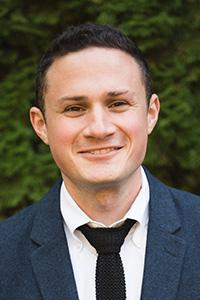David Markowitz is an Assistant Professor in the School of Journalism and Communication at the University of Oregon. He uses language data from natural repositories to make inferences about people, such as what they are thinking, feeling, and experiencing psychologically. A large part of his research focuses on how deception affects language, including how fraudulent scientists write their research papers compared to genuine scientists. His work has appeared in the Proceedings of the National Academy of Sciences, PNAS Nexus, Journal of Communication, Communication Research, Human Communication Research, and the Journal of Language and Social Psychology, and covered by outlets including Vice, Business Insider, Forbes, and NPR. He received his Ph.D. from Stanford University and his undergraduate and master's degrees from Cornell University.
For a full and updated list of publications, see his Google Scholar page and CV.
I am currently accepting new PhD students. Please contact me directly if you have any questions.
Please follow him online for reseach updates on Twitter: davidmmarkowitz.
Ph.D. Communication, Stanford University, 2018
M.Sc. Communication, Cornell University, 2015
B.Sc. Communication, Cornell University, 2010
Select and Recent Publications
Markowitz, D. M. (2022). Gender and ethnicity bias in medicine: A text analysis of 1.8 million critical care records. PNAS Nexus, 1(4), pgac157.
Markowitz, D. M. (2022). Toward a deeper understanding of prolific lying: Building a profile of situation-level and individual-level characteristics. Communication Research.
Markowitz, D. M. (2022). Revisiting the relationship between deception and design: A replication and extension of Hancock et al. (2004). Human Communication Research, 48(1), 158-167.
Markowitz, D. M., & Shulman, H. C. (2021). The predictive utility of word familiarity for online engagements and funding. Proceedings of the National Academy of Sciences, 118, e2026045118.
Markowitz, D. M., Song, H., & Taylor, S. H. (2021). Tracing the adoption and effects of open science in communication research. Journal of Communication, 71(5), 739–763.
Markowitz, D. M., & Slovic, P. (2020). Social, psychological, and demographic characteristics of dehumanization toward immigrants. Proceedings of the National Academy of Sciences, 117, 9260-9269.
Markowitz, D. M., & Levine, T. R. (2020). It’s the situation and your disposition: A test of two honesty hypotheses. Social Psychological and Personality Science, 12(2), 213-224.
I use computational approaches to gather and analyze language data, while also performing experiments to examine relationships between humans and technology. For an interactive way to understand my research and approaches, please use a tool that I have built: commPAIR.
2022 – Best Paper Award, International Association of Language and Social Psychology and the Journal of Language and Social Psychology. Award recognizing the following paper:
Markowitz, D. M., Kouchaki, M., Hancock, J. T., & Gino, F. (2021). The deception spiral: Corporate obfuscation leads to perceptions of unethicality and cheating behavior. Journal of Language and Social Psychology, 40(2), 277-296. https://doi.org/10.1177/0261927X20949594
2022 – Rising Star, Association for Psychological Science.
This award “recognizes researchers whose innovative work has already advanced the field and signals great potential for their continued contributions.”
2020 – APEX Award for Academic Publishing Excellence.

